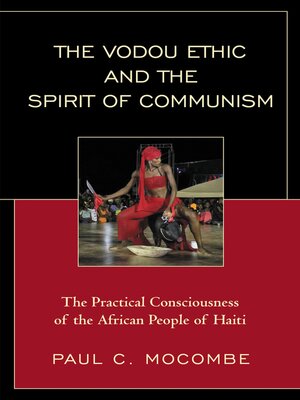The Vodou Ethic and the Spirit of Communism
ebook ∣ The Practical Consciousness of the African People of Haiti
By Paul C. Mocombe

Sign up to save your library
With an OverDrive account, you can save your favorite libraries for at-a-glance information about availability. Find out more about OverDrive accounts.
Find this title in Libby, the library reading app by OverDrive.



Search for a digital library with this title
Title found at these libraries:
| Library Name | Distance |
|---|---|
| Loading... |
Using a variant of structuration theory, what Paul C. Mocombe calls phenomenological structuralism, this work explores and highlights how the African religion of Vodou and its ethic, i.e., syncretism, materialism, communal living or social collectivism, democracy, individuality, cosmopolitanism, spirit of social justice, xenophilia, balance, harmony, and gentleness, gave rise, under the leadership of oungan yo, manbo yo, gangan yo, and granmoun yo, to the Haitian spirit of communism and the "counter-plantation system" (Jean Casimir's term) in the provinces and mountains of Haiti. What Mocombe calls the Vodou Ethic and the spirit of communism of the African people of Haiti would be juxtaposed against the Catholic/Protestant Ethic and the spirit of capitalism of the white, mulatto, gens de couleur, and petit-bourgeois free black classes of the island. This latter worldview, the Catholic/Protestant Ethic and the spirit of capitalism, Mocombe goes on to argue, exercised by the free bourgeois blacks and mulatto elites, Affranchis, on the island undermined the revolutionary and independence movement of Haiti commenced by subjects/agents, oungan yo, manbo yo, gangan yo/dokté fey, and granmoun yo, of the Vodou ethic and the spirit of communism, and made it the poorest, most racist, and tyrannical country in the Western Hemisphere.







